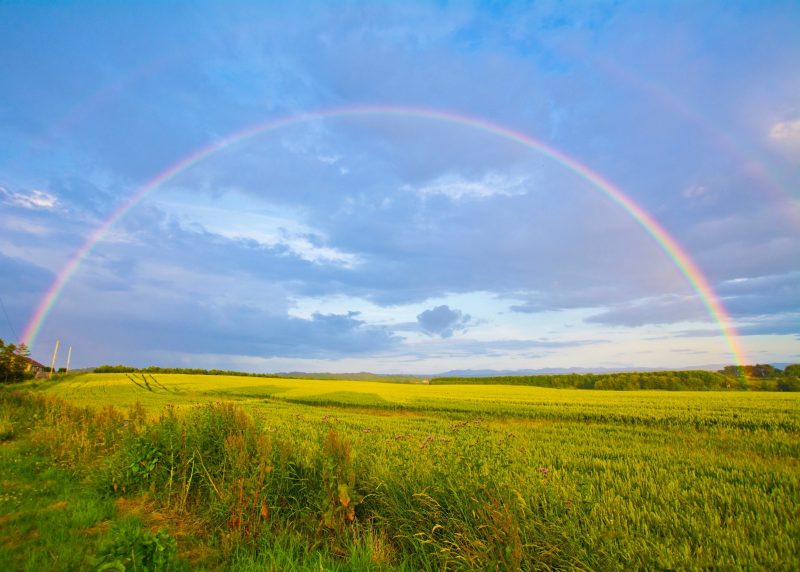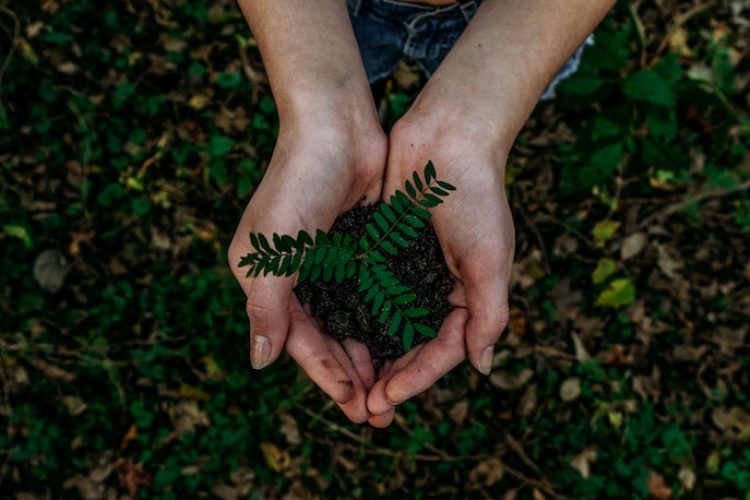Contemplative Action in the Time of Climate Change

Share This Article
This article is part of our Pamphlet for Sharing Series
By Tom Small and the QEW Publications and Spiritual Nurturance Committees.
We live in the time of The Long Emergency, and the Age of Unintended Consequences. Every morning brings evidence of loss: extinction of species, loss of traditional cultures, loss of freedom. Are we, as a civilization, losing our souls?
Scientists warn that if climate change continues as expected, a third of all species on earth could become extinct, and — even more catastrophic — 80% of genetic diversity within species may disappear by later this century. Phytoplankton in the ocean, crucial to the marine food chain and responsible for producing half the world’s oxygen, may be dying out. Melting of permafrost and release of frozen methane on the seabottom may release vast quantities of methane, a probable cause of swift, violent climate change 55 million years ago. Scientific studies demonstrate that even minor shifts in climate substantially increase human violence, from personal crime to civil and ethnic conflict, onward to collapse of institutions and cultures.
The truth is daunting, if not overwhelming. What then are we to do? How are we best to care both for ourselves and for an afflicted, diminished earth? Many Quakers profess a Quaker earthcare witness. What do those three words mean to all of us?
Earthcare Among Friends
As Quakers, we often describe ourselves as being “in the world but not of it.” We aspire to combine a spiritual, inward life with an active life of service for the common good. How do we, as Quakers, understand and practice not being “of the world”?
Earthcare is at the center of the QEW name and commitment. But QEW began as Friends Committee on Unity with Nature. What does nature itself say to us about care for the earth? If we live “in the world,” in unity with nature, what is our “care,” our practice?
The whole world becomes a slave to its own activity; if you want to be truly free, perform all actions as worship.–Bhagavad Gita, 3.9 (trans. Stephen Mitchell).
Finally, what is the true practice of Witness? The founding inspiration for QEW came from Marshall Massey, who tells us that the ancient discipline of witness involves recognizing and taking responsibility for the truth of one’s own situation and complicity, changing in accordance with that recognition, and seeking to bring others to recognize the truth and therefore “change direction.” Thus, says Massey, “The fruits of witness meant spiritual redemption and social reform both.” Aren’t we then back to that basic concern for Quakers, and for all of us: how to be in the world but not of it? How might we begin to suggest some answers?
Coming to Our Senses
In losing the ancient, shamanistic ability to discern what the natural world — plants, animals, stones, water, air, soil — says to us, we risk losing touch with our own inward spirit and acting merely for the sake of action. We have eyes that see not, ears that hear not. We come to our senses and save our souls through what Wordsworth calls “wise passiveness.” In attentive stillness one being comes to know another as an active presence. When we cease to manage, persuade, consume, or overcome the “other,” we discover both the unity and the difference between us and otherness. We realize this instance of an infinite, endlessly creative diversity in unity, which is both Nature and Self. Then we approach harmony with ourselves and the other. In contemplative stillness we begin spirit-led action “in the world.” We are responsive to our Leadings. We hear our own “still, small voice,” and we may hear or invoke it in the other, to “make the witness of God in them to bless you” (George Fox).
In such a moment, we commune, as both Quakers and creatures. We gather “local nature — the earth, the water, the air, the native creatures — within the membership of the community” (Wendell Berry). We re-member what has been lost. And so we enter into the spiritual economy of gift exchange, a dramatic dialogue of continuing revelation and faith-response.
Taking Up Noah’s Mission
Faithful response is covenant — rainbow covenant. Together, we take up the mission of Noah, preserving and renewing the sacred remnant. Every scrap of earth, every meeting, every human relation and agency, can serve as an ark, for preservation and renewal. In keeping faith, we are not “of the world,” for we remain, even in action, contemplative and detached. Leading is not from ego but from Spirit, all-encompassing Self. Success or failure is not ours. Our calling is simply to keep faith with Spirit and Covenant, the beloved community.
Choosing to Act
Without action we cannot realize the fullness of our own being or that of the other. Without action, we cannot discover our true character, our unique role. In the Bhagavad Gita, a dramatic debate on detachment and action, Arjuna the warrior refuses to act. In anguished, revelatory dialogue with Krishna, his charioteer and Lord, Arjuna learns that all actions are interrelated in a universal drama of sacrifice and renewal. He faces the dilemma and paradox of being human: he must choose to act — in accordance with his role in the drama. Finally, he consents. So must we all.
What is our role? It is infinitely various, ever-changing, and always the same, Nature’s diversity in unity. Are we to redeem a scrap of degraded land? Make a joyful noise unto the Lord? Support the campaigns of FCNL? Grow our own food? Aid a suicidal farmer in India, ruined by Monsanto? Get off the grid? Live more simply? Stand in the way of a logging truck? Help create a climate-action plan for the church or meeting, and the community?
As the contemplative spirit is led, so it chooses to act. In contemplative action, it realizes that which it always has been and is yet to become.
For Contemplation & Action
Coetzee, J. M. The Lives of Animals. 1999.
Corbett, Jim. Goatwalking: A Guide to Wildland Living; A Quest for the Peaceable Kingdom. 1991. 2nd ed., 2022.
Ghosh, Amitav. The Nutmeg’s Curse: Parables for a Planet in Crisis. 2021.
Kumar, Satish. Earth Pilgrim. 2009.
Macy, Joanna, and Chris Johnstone. Active Hope: How to Face the Mess We’re in Without Going Crazy. 2012.
Massey, Marshall. Workshop materials, “The Ancient Discipline of Witness.” FGC Gathering. 1997.
Sanders, Scott Russell. “Building Arks,” in A Conservationist Manifesto. 2009.
White, Rowen, “Skywoman’s Garden,” in Kinship: Belonging in a World of Relations, vol. 3: Partners. 2021.
Friends Committee on National Legislation. www.fcnl.org

